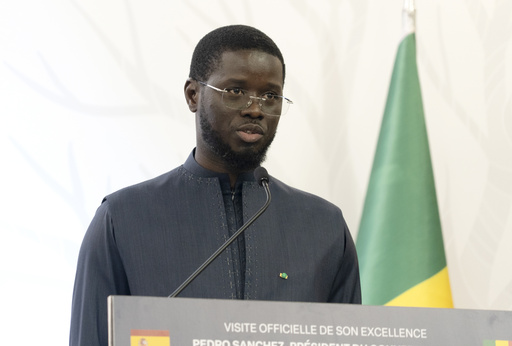
DAKAR, Senegal — On Friday, politicians in Senegal concluded a highly charged electoral campaign in anticipation of crucial legislative elections set for this weekend. The outcome of these elections will reveal whether the newly elected president can pursue the bold reforms he promised during his campaign.
Senegalese voters will select 165 members for the national assembly on Sunday. Currently, President Bassirou Diomaye Faye’s party does not hold a majority in the assembly, which poses challenges for implementing his proposed changes. Faye, who took office in March with a focus on anti-establishment sentiment, has indicated that the lack of a majority has hindered his ability to move forward with reforms aimed at combating corruption, reassessing fishing permits granted to foreign companies, and ensuring that the populace receives a larger share of the nation’s natural resources.
In September, Faye made the decisive move to dissolve the parliament, which was controlled by the opposition, thereby setting the stage for a snap legislative election. He faces opposition from the Takku Wallu coalition, which is spearheaded by former President Macky Sall.
The campaign trail has witnessed intense skirmishes among supporters of various political factions, culminating in violent incidents in central Senegal in recent weeks. Reports noted that the headquarters of an opposition party in Dakar was set ablaze, as confirmed by the ministry of the interior on Monday.
On Tuesday, Ousmane Sonko, who serves as the country’s prime minister and has significant popularity as an opposition figure, condemned the violence directed at his party, PASTEF, in Dakar and other regions. He expressed a desire for justice for those injured, emphasizing the importance of a measured response. However, he later urged his supporters to maintain peace during his address that day.
In a previous incident last month, Sonko’s campaign vehicle was attacked with stones amid a clash between his supporters and unidentified assailants while he was campaigning in Koungueul, located in central Senegal. Furthermore, the leader of a party allied with him, former minister Malick Gackou, reportedly suffered a broken arm during this confrontation.
The presidential election in March was a significant test for Senegal’s status as a stable democracy within West Africa, a region that has recently witnessed numerous coups and political instability. Both Faye and Sonko were released from prison less than two weeks before the election due to a political amnesty granted by outgoing President Macky Sall. Their imprisonment ignited widespread protests and triggered fears that Sall intended to run for a third term despite existing term limits. Human rights organizations reported that the unrest resulted in numerous casualties and approximately 1,000 arrests.
